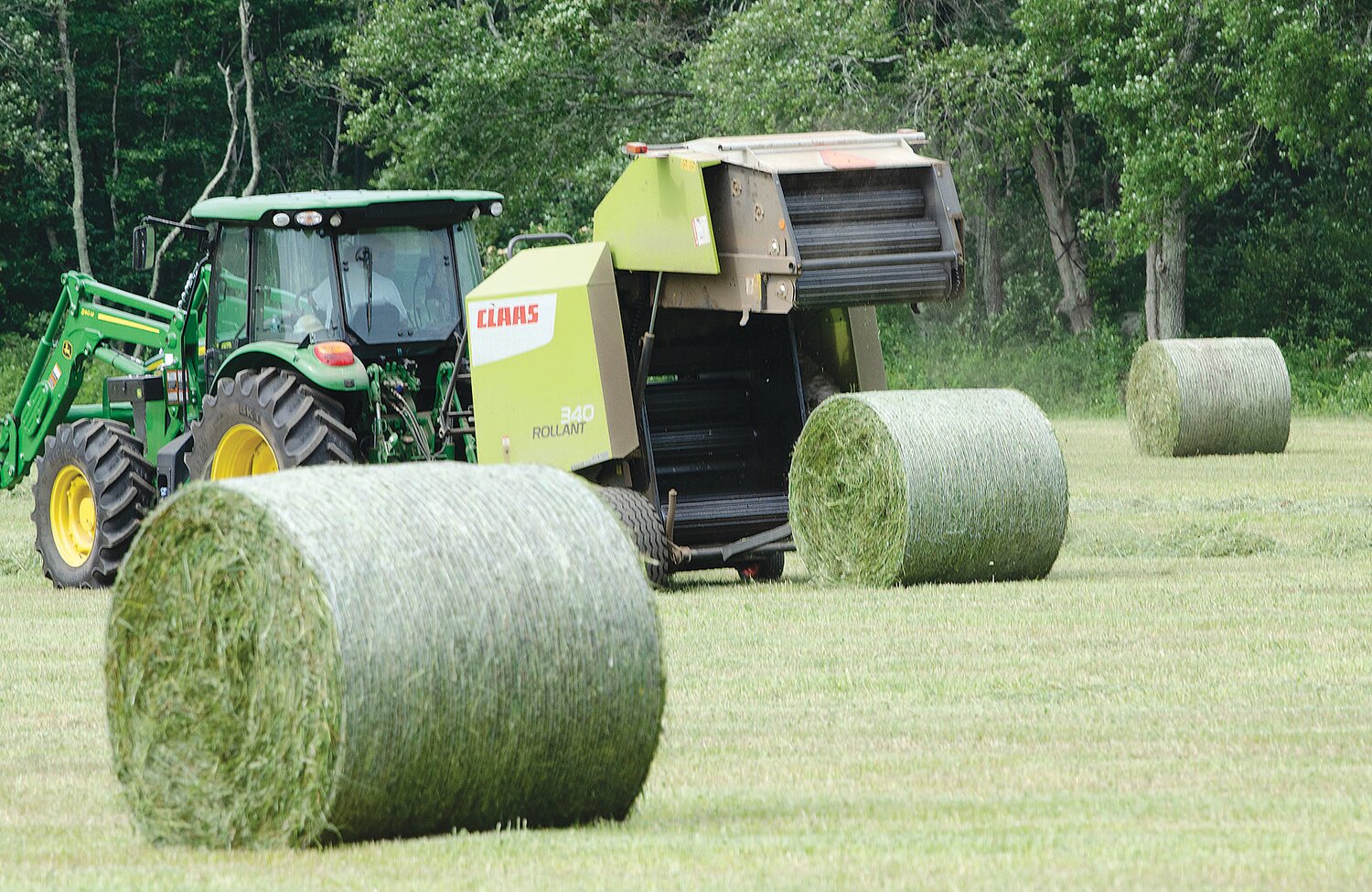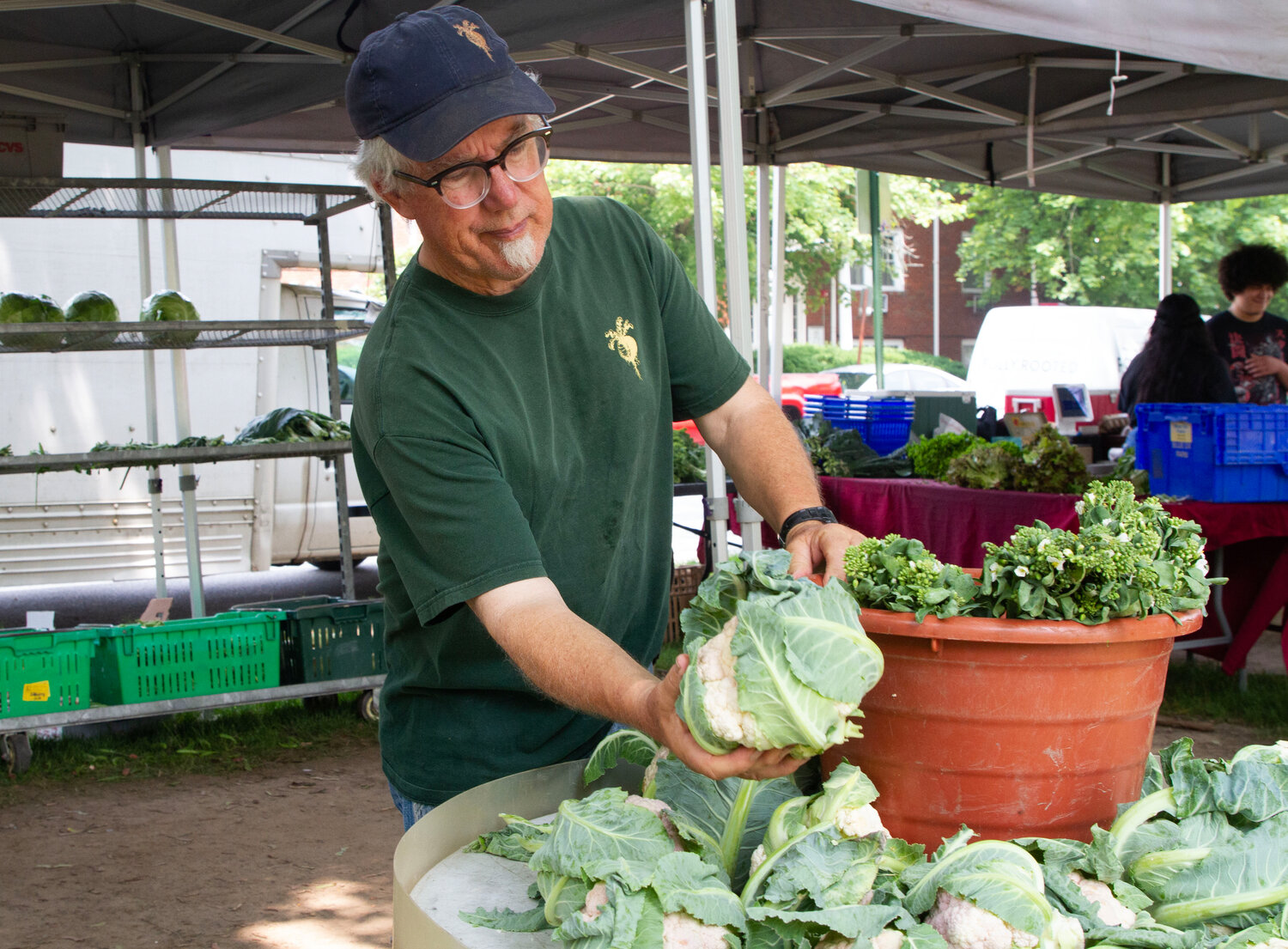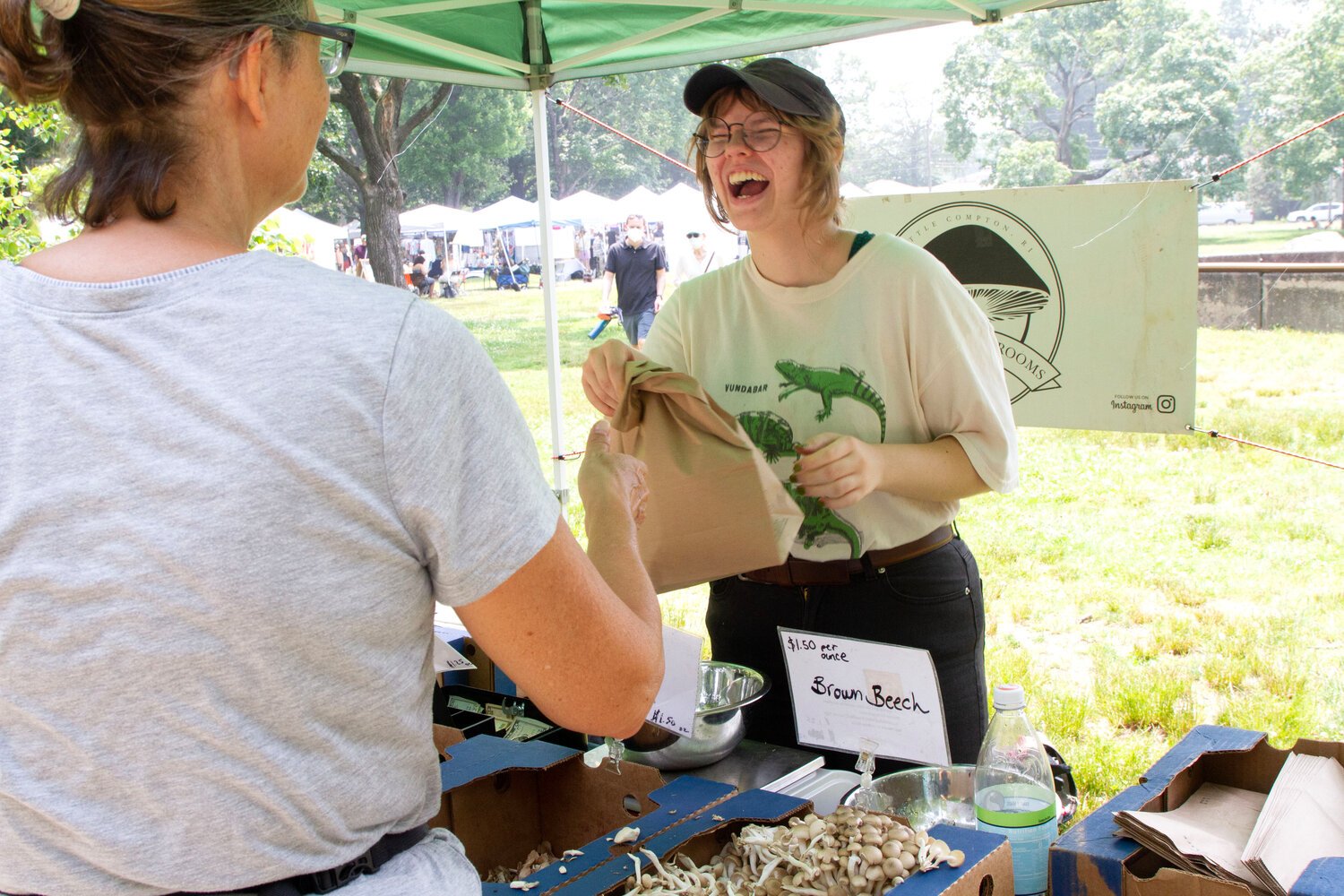Effort underway to 'Keep the farm in farm coast'
Editor's note: This is the first in a series of articles on the current state and future of farming along the 'Farm Coast,' the incredibly fertile, rolling countryside that skirts the ocean from …
This item is available in full to subscribers.
Please log in to continue |
Register to post eventsIf you'd like to post an event to our calendar, you can create a free account by clicking here. Note that free accounts do not have access to our subscriber-only content. |
Day pass subscribers
Are you a day pass subscriber who needs to log in? Click here to continue.
Effort underway to 'Keep the farm in farm coast'
Editor's note: This is the first in a series of articles on the current state and future of farming along the 'Farm Coast,' the incredibly fertile, rolling countryside that skirts the ocean from Dartmouth west through Westport and Little Compton, up to Tiverton and over to Aquidneck Island. Though the region's farming roots go back many centuries, there has never been more pressure on farmers here than there is today. Labor shortages, the prohibitive cost of land and housing, gentrification, attrition and the changing habits of consumers have all squeezed local farmers, who now produce a lower percentage of the region's food supply than at nearly any point in history. But farmers are nothing if not resilient, and a loose coalition of regional growers, land conservationists and like-minded food suppliers is working to improve their lot through a new campaign that aims to "Keep the Farm in Farm Coast."
Following on a regular basis will be stories of those in the fields.
It's the Sunday before the Fourth. Bristol is jammed with tourists, Narragansett and Buzzards bays are crowded and beach lovers have returned to Cherry and Webb in Westport and South Shore in Little Compton. A long holiday weekend is in full swing, but Silas Peckham-Paul won't see much of it. Just after 7:30 a.m., he's already been on the job for hours and chuckles when asked if barbecues and parades are in his immediate future.
"Little Compton is nuts in the summer," said Silas, 34, who will soon take over the operation of his family's Wishing Stone Farm, a staple in Little Compton since its founding by his dad Skip 40 years ago this summer.
"It gets pretty busy and there's always something to do. You really have to be a jack of all trades to be a farmer. We're pretty busy right now."
Silas, 34, was born in 1989 and runs the farm with wife Liz, dad Skip and about 50 seasonal workers. He loves his life and has been working the farm full time since graduating high school. Though it is often difficult and the hours never end, he has never had regrets or moments when he thought he didn't want to continue working the land, or to take over the family operation when the time came.
"It was an easy choice for me," he said. "It's not for everyone — long, random hours, a lot of work. But I love it."
The farm crops about 40 to 50 acres and is in charge of more than 60, many of them owned and leased out by others, including the Little Compton Agricultural Conservancy Trust. Apart from staple summer products like tomatoes, cucumbers, zucchini and other foundational crops, Wishing Stone also grows ginger, Asian greens and many other types of produce, and makes value-added products through a kitchen that this time of year works round the clock to keep up with demand. Wishing Stone sells direct to customers at the Hope Farmers Market in Providence, the farm's own weekly market on Shaw Lane, and to restaurants and wholesalers.
One of Paul's goals in taking over Wishing Stone, he said, is to "tone down the chaos," focusing the family operation to concentrate on higher-return and more sustainable products.
"At some point you gotta try to streamline," he said. "That's what I'm trying to do as I take over — try to do the things that work. There's always a better (and) more efficient way."
But for this Sunday? Barbecues aren't on the agenda as the buyers are back and the crops need tending.
"It's nice to finally start taking in some money instead of spending it."
Keep the Farm in Farm Coast
Securing a prosperous future is not getting any easier for Wishing Stone and scores of other regional growers, large and small.
On the heels of "Everyone Was A Farmer," a large exhibition at the Little Compton Historical Society that examined the issue of farming past, present and future, a loose coalition of locals from Dartmouth, Westport, Tiverton and Little Compton began meeting last year to try to come up with ways to publicize the issues facing farmers, and educate the public about why their success is inextricably tied to the future, health and identity of the region.
They came up with the slogan "Keep The Farm in Farm Coast" because it fit, said Carter Wilkie, a Little Compton heritage pig breeder who helped organize the campaign.
"We got concerned (because) there's a complacency that farming will always be here because it's always been here," Wilkie said.
The numbers show the danger of that line of thought, he said:
Rhode Island has lost more than 80 percent of its farmland since the 1940s, according to the Rhode Island Land Trust Council; today only about seven percent of the Ocean State's total land is farmed.
And while the state is home to about seven percent of New England's population, it produces only about one percent of the food consumed by New Englanders. The numbers are higher in Massachusetts, but not by much.
Meanwhile, market forces are driving farmers out, even those who want to start or stay. While trusts like the Westport Land Conservation Trust and others in Little Compton, Tiverton and Aquidneck Island are working to protect farmable land and keep as much of it in the hands of growers as possible, Real Estate pressure and zoning is taking its toll not just on the ability to purchase and keep desirable rural land, but in the ability of farmers to find affordable housing at or near the farms they work. It's more expensive to buy one acre of farmland in Rhode Island — an average $22,248 — than any other state, according to the Aquidneck Land Trust. And of that land, the most expensive, on average, lies in Newport County. Across the border in Dartmouth and Westport, the numbers are similar.
While Wishing Stone's future leadership is secure, many other established farms do not have succession plans in place as their owners age. However, there are many young farmers who want to give it a go themselves — if they could only find land they can afford to work.
What to do?
Wilkie said the campaign's main goals are to celebrate farmers and those who help get their products from the field to local consumers' tables, increase the percentage of rural open land dedicated to local food production, and fight for regulatory and market changes that could make farming more viable to those drawn to the field. He said doing so benefits all, not just the farmers, as a region that produces its own healthy food is inherently stronger, with a better-defined sense of self. The alternative worries him:
"Where you spend your food budget determines the landscape around you," said Wilkie. "If you're buying local, you're helping to keep working farms working. If you're buying at Wal Mart, you're going to be surrounded by Wal Marts."
"This is such a beautiful, unique region and what makes it unique is not the coast. This is really the last place in Southern New England where you have farming on the coast. And it's the farming that makes it different; the fact that it's survived so long. I see an opportunity for this region to supply a lot of that future demand."
But getting there will require all impacted parties working together toward a common goal, from both the consumer and producer sides, Wilkie said.
"I think if farmers could work together more, then we would all survive," added Shirley Robbins, who runs Paradise Hill Farm in Westport with husband Teddy. "That’s something that I think is so important: That farmers need to work together, and also we need to share information with each other. That makes us all stronger.”
Note: In the coming months, we will hear from land trusts, farmers and consumers, as well as new ventures that hope to connect those who produce with those who consume.












